10 Reasons We Love Traditional Survivor Series Matches
We love them like an old, long, cluttered, inconsistent song. November Rain, probably...

Nov 16, 2018
Before we begin this article in earnest, please enjoy this quote from Denholm Reynholm - bombastic business tycoon of popular UK sitcom
The IT Crowd
:
"Look at you! My IT team. Team players, each and every one of you. There's no room for people who can't act in a team on my team! [...] Team! Team, team, team, team, team. I even love saying the word 'team'. You probably think this is a picture of my family. Nuh-uh. It's The A-Team."
The key takeaway here is that teams are incredibly important, and also that this is the fourth or fifth intro I've written for a Survivor Series-related article. I'm really starting to scrape the content barrel here.
I was originally planning to write that traditional Survivor Series tag matches are the purest form of teamwork in WWE, but that's not true at all. Great tag team wrestling involves partners with excellent intuitiveness and timing, from the high-flying Rockers to the dastardly Edge and Christian. More often than not, traditional Survivor Series matches don't follow this formula at all. At best, they feature a group of individuals arbitrarily thrown together because it's November again. Often they descend into chaos.
But we love them regardless - or, perhaps, because of this. Occasionally the old debate will pop up - 'should WWE scrap Survivor Series from the big four' - but losing the grand old pay per view would mean losing these traditional, imperfect gems. I'm not willing to stand for such killjoy behaviour.
This article is a defence of elimination tag matches and an examination of why they're actually brilliant. I hope you agree.
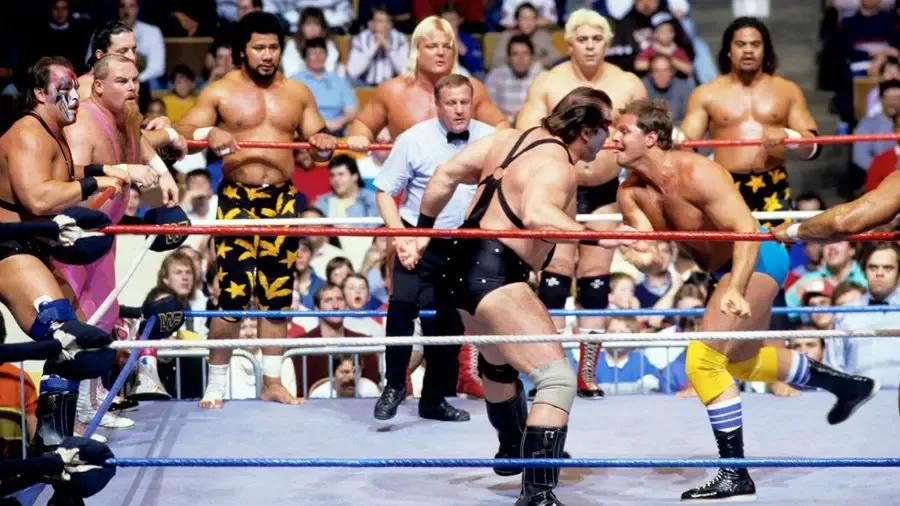
WWE doesn't really seem to like the past, or at least, not as much as we fans do - feverishly pouring over past PPVs on the Network, compiling facts, statistics, endless knowledge which we then use to own our peers on Twitter or Reddit. The promotion itself dips into the past when it deems it appropriate, ie. rarely.
WrestleManias are no longer overtly numbered, former feuds largely go unmentioned unless they directly serve the storyline at hand, and we're generally encouraged to treat sports entertainment as a vacuum of the present.
Traditional Survivor Series matches are - with the possible exception of the Royal Rumble match - the only enduring link to the past WWE consistently shows an interest in maintaining. There's something delightfully old-school about watching far too many wrestlers crowd a ring apron, engaging in drawn-out elimination bouts for no real prize. Charming is the word. It's charming.
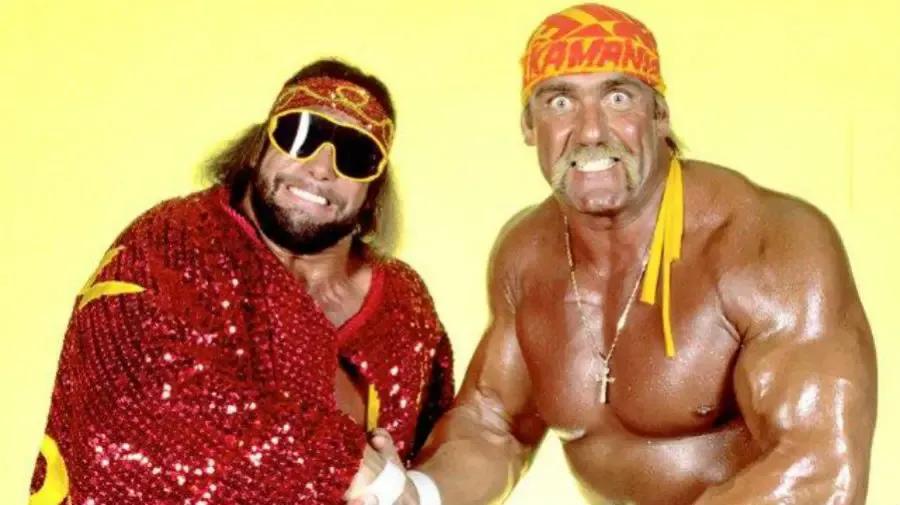
Just because traditional Survivor Series matches are usually fought with no explicit goal in mind doesn't mean they're devoid of storytelling potential. Au contraire, dear reader - they're often laden with plot-lines, several sometimes overlapping in a single contest.
Think of Jannetty accidentally costing Michaels in '91, or the Mega-Powers just
beginning
to explode in '88. Think of HBK battling bravely to save Austin's co-GM status in 2003, only to fall agonisingly short.
Think even of The Rock, or more accurately, a wide-eyed Rocky Maivia, taking his first tentative steps into the world that would soon become his kingdom.
Admittedly, not all Survivor Series elimination bouts fall into this category. Some are just thrown together for the hell of it, and that's fine. But the ones that tend to live longest in the memory are those where things of consequence happen.

The great strength of pro wrestling is that it isn't real. Pretty much every UFC card will see a handful of plodders, and I've lost track of the number of boxing matches I've eagerly tuned in for, only to tap out after the fourth round.
You aren't going to see 15 minutes of nothing in a WWE contest (unless you're watching Goldberg vs. Lesnar from WrestleMania XX). A general rule of thumb is that wrestlers do
stuff
, and traditional Survivor Series matches mean more bodies to contribute to the chaos.
I'm talking Ric Flair surviving in 1991 because literally everyone else got disqualified for brawling en masse. I'm talking 2016, when Brawn Strowman attempted to throw James Ellsworth through the bottom of the production area into hell.
As far as non-hardcore stipulations go, traditional Survivor Series matches allow for a healthy dose of annual anarchy.
Brb, going to pitch 'Annual Anarchy' to Vince McMahon as a new PPV name.
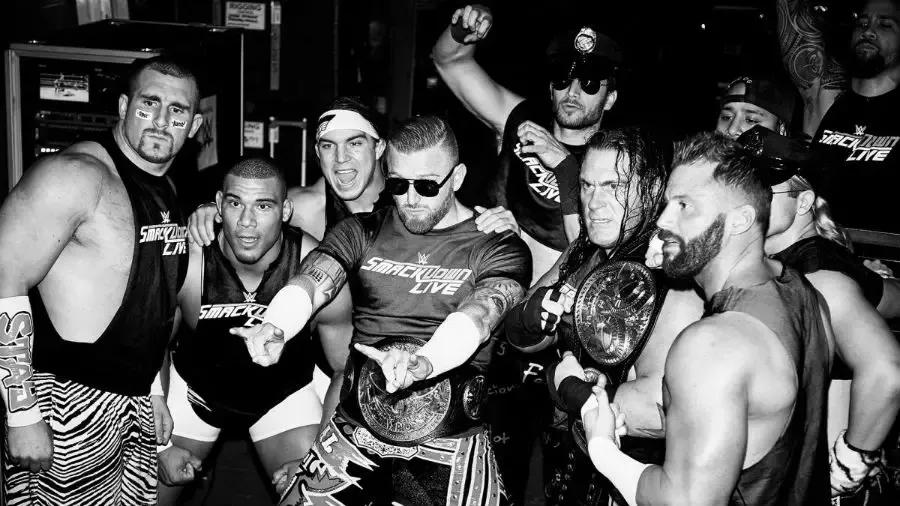
Speaking of things that are annual, don't yearly events feel extra special? Apart from performance reviews and exams and stuff.
I personally stopped enjoying Survivor Series as much when Bragging Rights was a thing. Sure, it wasn't
exactly
the same concept, but the whole Raw vs. SmackDown brand warfare setup really diluted our usual Thanksgiving spectacular.
Now that things are back to the way they should be, we can all savour how fresh those traditional elimination matches are when November rolls around.
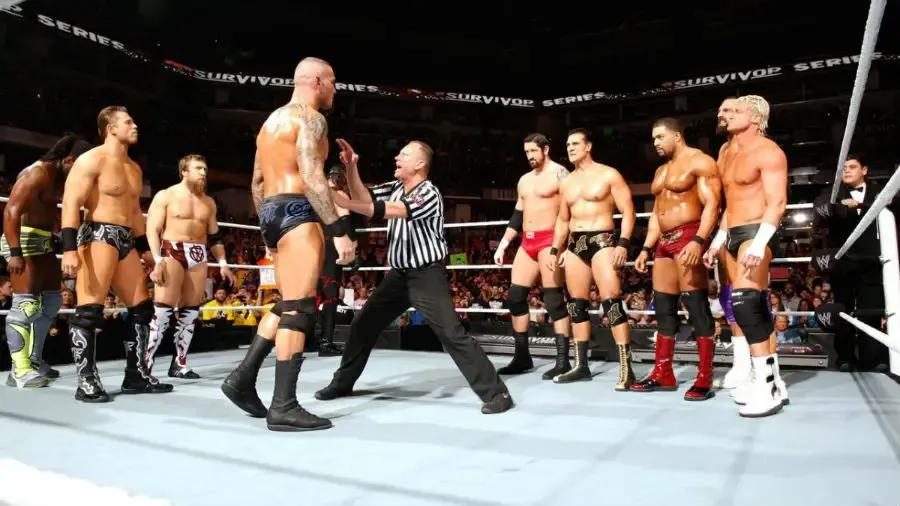
In my article on superstars who thrive at Survivor Series, I wrote about how we all have that part of our brain that thrives on stats. The other day, for example, I read a break down of the various nationalities on board the Titanic when it sank.
I don't have a particular fascination with the Titanic, or nautical disasters in general. I was just bored and the internet was like "Hey, I know you have a hell of a lot of writing to do. Why not check
this
out instead?"
Traditional Survivor Series matches are a goldmine for this. You've got survivors (sole or otherwise), methods of elimination, eliminators, eliminatees, team line-ups, time spent in the match - I'll stop, it's making my salivate.
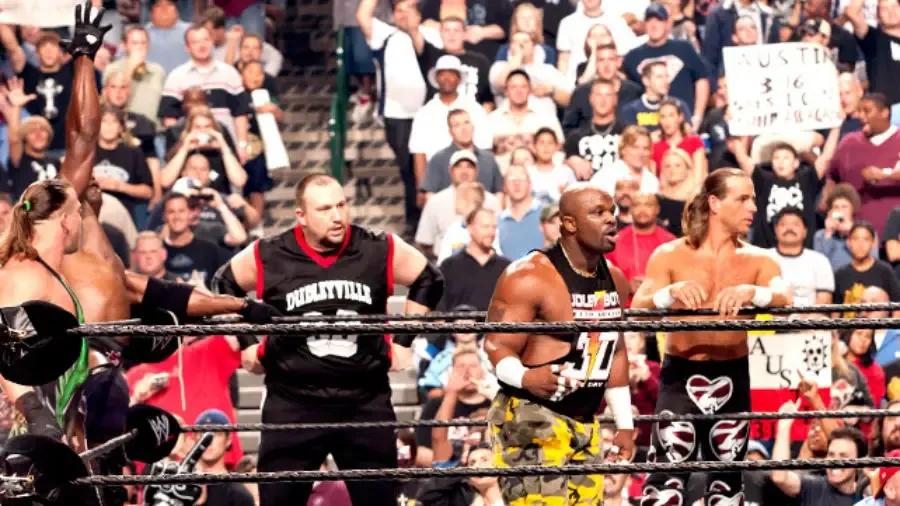
I'm not going to claim that Survivor Series tag matches always produce the goods. There are a number of utter stinkers peppered through the history of the pay per view.
However, I will argue that when they're good, these bouts have the capacity to be utterly fantastic. From the gruelling 20-man sagas of the early age to 2016's beautifully structured epic, by way of the impossibly high stakes Invasion blowoff in 2001, Survivor Series matches provide compelling entertainment in a variety of ways.
Once again I'm going to since out Team Austin vs. Team Bischoff from 2003, possibly my favourite elimination tag match of all time. If you haven't seen it, please do. I know you're already aware that Shawn Michales is one of the greatest of all time, but that doesn't mean it gets boring to watch.

The similarities between professional wrestling and comic books are numerous, and probably well-documented somewhere. I am not the man to document this; my knowledge of graphic novels is incredibly basic. I liked The Dark Knight, and I got quite into Judge Dredd when I was about 13 because my dad showed me some old 2000 ADs. That's about it.
Anyway
, what I'm trying to say is: if WWE is Marvel, Survivor Series matches are The Avengers. Traditional elimination matches allow for incredible combinations, some of the most enduring supergroups including Team WWF from 2001 (Rock, Undertaker, Kane, Jericho, Big Show,
aw yeah
), and that 2006 babyface collective I'm going to refer to as 'Cool Team DX' - Triple H, HBK, both Hardys, and CM Punk.
Of course, not all amazing teams deliver in the ring as they do on paper. Edge and Christian teamed up with Matt and Jeff in 1999, and the fact we aren't still talking about that today implies that maybe it didn't pop off like it should have. In fairness, it probably came way too early in both teams' careers.
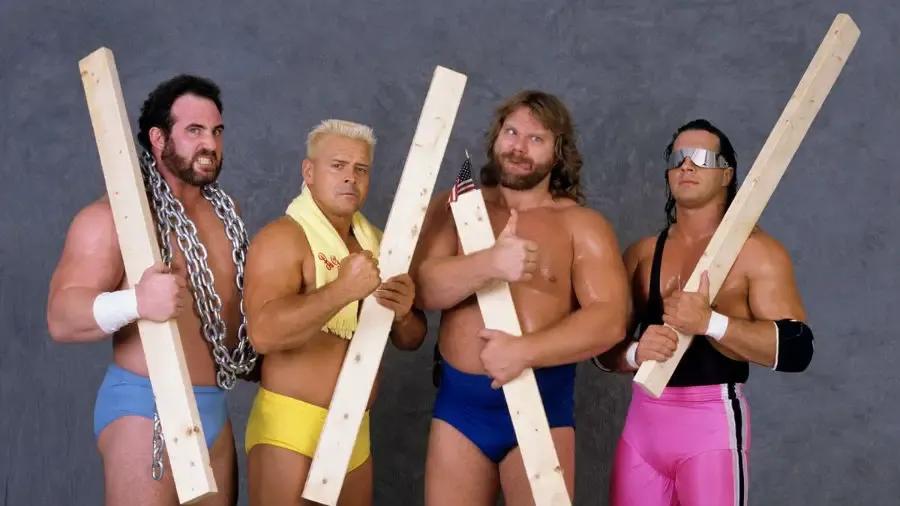
Good teams are great, but hilarious teams are
awesome
. If that isn't a mantra to live and die by, I don't know what is.
Nowadays, with sillier gimmicks often confined to the lowercard, truly hilarious combos are few and far between. To really find some of the best/worst teams in Survivor Series history, you have to go back to the earlier days of the pay per view.
I'm particularly a fan of the time Doink was scheduled to captain a team in 1993, but didn't, so they just sent The Bushwhackers and Men on a Mission in clown makeup for no reason.
Of course, hilarious teams also mean hilarious team photos - such as the one above. Look how little Bret Hart wants to be there; isn't that
amazing
!?
Bonus hilarity points for any Hulkamania-era team featuring several loud 80s characters, all shouting over one another in the pre-match promo. Endless entertainment.

Incidents such as the Montreal Screwjob, Goldberg squashing Lesnar, and the vehicular assault on Austin have helped give Survivor Series a certain reputation. The Road to WrestleMania is only a couple of months away, and in any given year, WWE could decide to kick things into a higher gear by booking something
crazy
.
But such incidents aren't just limited to non-tag matches on the pay per view. Survivor Series' habit of shaking the entire wrestling world manifests itself through traditional elimination bouts too.
Just a few examples off the top of my head:
Like WrestleMania, Survivor Series has that innate sense of potential. Even if the card looks bland, something huge could always happen.
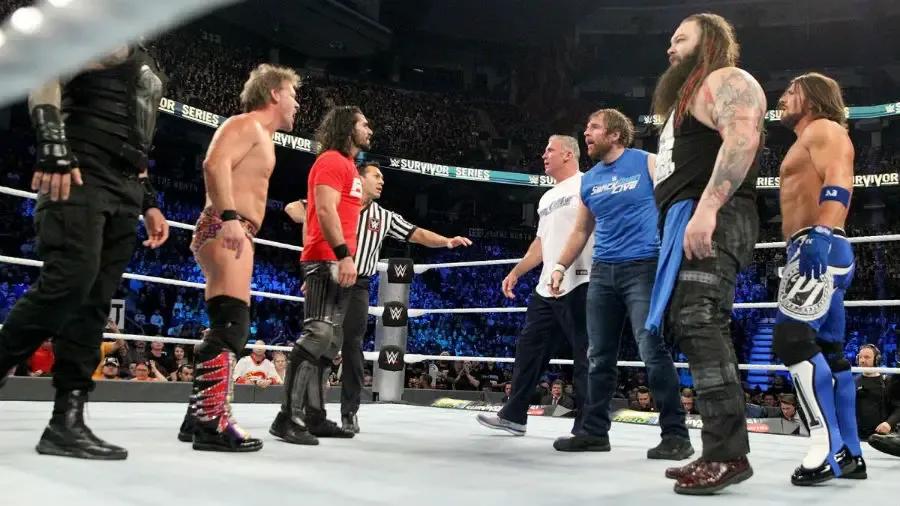
It's a cliche, but we really would miss traditional Survivor Series matches if they were gone. It's one of the most accessible
If I sat my grandmother in front of a King of the Mountain match, she'd likely get confused. That's not a jibe at her; I think we can all agree that stipulation is convoluted as hell. Sit her in front of a weapons-based bout and she'd absolutely hate the overt violence.
But there's something about the elimination tag match that appeals to us all, even non-wrestling fans. It's simple - there are two teams, and the last team surviving wins - but the possibilities seem endless. It's old school, it's picking sides in the school playground, and there's something wonderful about that.
"But hold on!" I hear you cry, "Isn't that essentially the same as point no. 10 at the beginning of the article?"
Admittedly it kind of is. I'd like to say it was a deliberate decision, giving the article a nice cyclical sense of closure, but that would be a lie. I just messed up. I hope this doesn't come between us, and I hope it doesn't taint your newfound admiration for traditional Survivor Series matches. Please.
Thanks for reading!
(Please.)